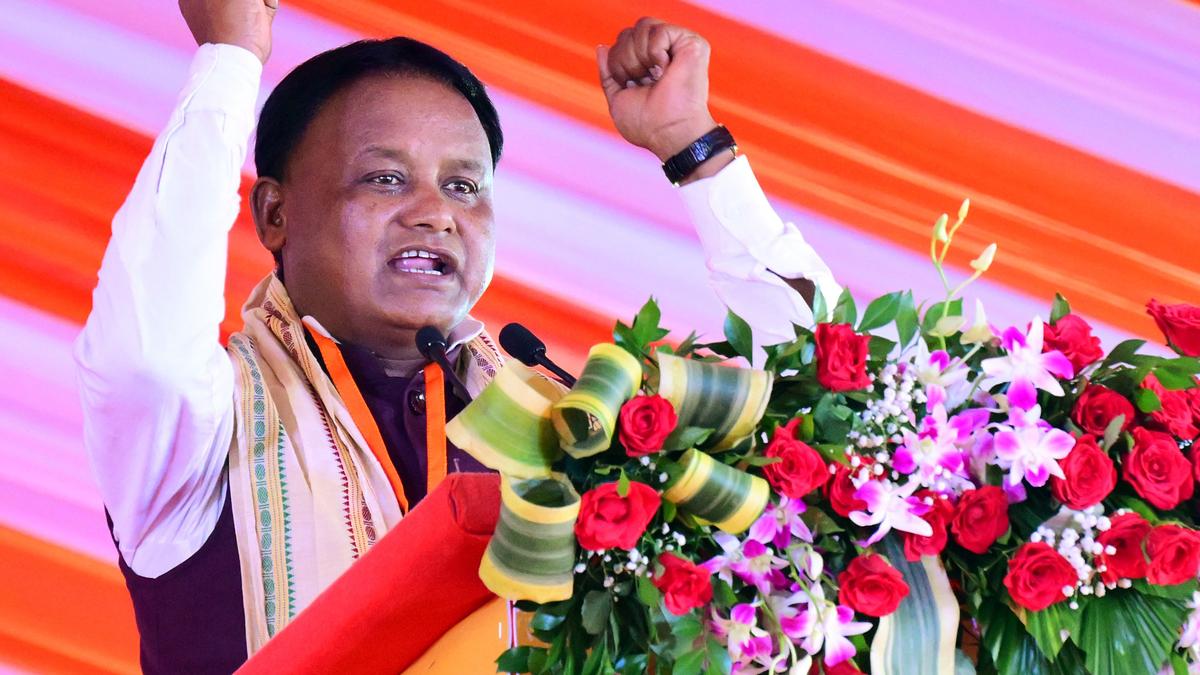Odisha Chief Minister Mohan Charan Majhi. File
| Photo Credit: ANI
At a time when the new Bharatiya Janata Party (BJP) was expected to get going immediately after change of 24-year-old regime in Odisha, the basic bureaucratic set up inherited from previous government remains largely unchanged.
Senior bureaucrat Manoj Ahuja’s appointment as State’s chief secretary necessitated as P.K. Jena former chief secretary was retiring on June 30. Another notable change was appointment of 1993-batch IAS officer Nikunja Behari Dhal as Additional Chief Secretary to Chief Minister Mohan Charan Majhi.
Except two changes at the top, there has not been reshuffle in secretary level officials. The BJP government had come to power highlighting bureaucratic supremacy in the previous Naveen Patnaik Government as one of major issues.
A former top bureaucrat remarked that as the Majhi government approaches its one-month mark on July 12, it should have swiftly restructured the senior bureaucracy to give a push to its programmes. Ironical, the new Chief Minister still does not have a private secretary, a crucial position for managing his appointments.
“Several top secretaries remained posted for years at one position. Senior IAS officer G. Mathi Vathanan is perhaps longest serving Housing and Urban Development Secretary. Sports secretary R. Vineel Krishna and ST & SC Development Secretary Roopa Roshan Sahoo are known for their proximities to power centre in the previous government,” he said.
Although officials who held various positions in the Chief Minister’s Office during the previous Patnaik administration have been sent back to their original departments, and some have been asked to resign due to their post-retirement appointments, majority of these vacancies remain unfilled.
Similarly, important position such as Advocate General (AG) does not have a full-time appointee. Jyoti Prakash Pattnaik, a government advocate, has been asked to remain in charge of the Advocate General to manage the day-to-day work in addition to his own duties.
With uncertainty surrounding the reshuffle and departmental secretaries viewing their positions as temporary, normal departmental operations are affected. Similarly, top police officials and district collectors are also anticipating their transfers.






